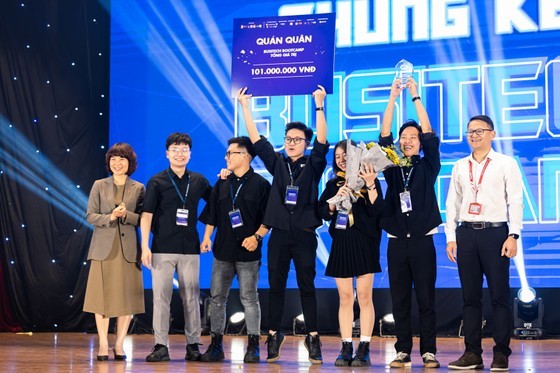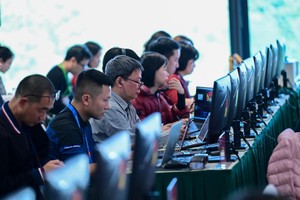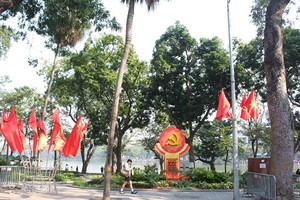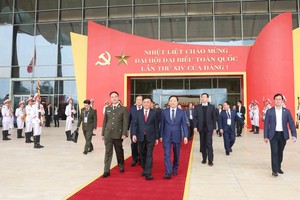 |
Students of Hanoi University of Science and Technology are welcomed to work in foreign companies |
45-year-old Nguyen Hong Minh recalled that she used to work in the Industry and Trade Ministry as she had graduated with excellent academic results. However, after rounds after rounds of strict screening, she found out that a chance to prove herself in the new position was an even more challenging task as she was usually assigned minor errands. That was why she decided to opt out and is now a senior manager of Women’s Initiative for Startups and Entrepreneurship (WISE).
Another story comes from Phan Linh Chi, who graduated in 2020 with a bachelor’s degree in business administration of the National Economics University (Hanoi). She is now a Chief Operating Officer of a domestic company specializing in software and e-commerce solution.
Linh Chi explained that the main reason why young skillful laborers – or Gen Z people – rarely apply for a position in the public sector is low salary and fringe benefits (paid holiday, flexible distance working schemes, healthcare plan for family members of employees, balance between professional and personal life) compared to the private sector. Besides, the working environment in private enterprises is diverse to suit various types of workers.
She stressed that as to promotion prospects, the private sector prioritizes professional skills rather than qualifications or experience, which is extremely suitable for the young to prove themselves. When becoming a middle-level manager, they can attract more talented people like them to the company. It is job satisfaction that keeps those laborers in the private sector, not the salary range. This is the major difference with the public sector.
32-year-old Nguyen Van Thanh graduated with an excellent academic result from Hanoi University of Science and Technology in 2013. He is now a head of the project department in a large automobile manufacturer from Austria. After 10 years there, he has gained experience working in more than 20 countries worldwide.
Thanh shared that when he graduated, he could not find any job vacancy information in the public sector. However, even when there is such information, he still opts for the private one because he understands the complexity of the recruitment procedure in the public sector, not to mention low salary. Meanwhile, information on both working conditions and work benefits of a company in the private sector can be easily found on the Internet through comments and evaluations of current employees there.
Yet one more story of a Gen Z person comes from 33-year-old Nguyen Thanh Lan, who is now holding the position of a sales manager in a Japanese company. She recalled that from the first position of merely a receptionist in this enterprise, she gradually proved herself worthy and was correspondingly promoted to various positions until she could find the most suitable one. Besides favorable benefits like health insurance for family members of employees and high salary, Lan praised the company on promising promotion prospects, which is tremendously attractive to the young.
The reality reveals that a large number of skillful Vietnamese laborers graduating from foreign universities have a wish to come back home to contribute to the national development. Yet with such low salary and poor working conditions, work benefits, there is no way they actually fulfill that wish. It is estimated that each year, Vietnam spends US$1.4 billion on scholarship for young people to obtain a degree in other countries; but this investment sees no profits since not many do come back home to work.
Economic globalization has led to more foreign companies entering the domestic market. Young skillful laborers, therefore, can confidently choose the most suitable working environment for them, which is rarely in the public sector. This is truly a worrying trend for human resources administration in that sector.
Prime Minister Pham Minh Chinh has for many times directed to let public investment attract more investments from other sources. This is not only precise in economic development but also in human resources growth in the public sector. The competition for the talented between the private and public sectors has become harsher. It is critical now to introduce more appealing policies to attract skillful laborers since these people are the key resources for social development and the national power in general.
























